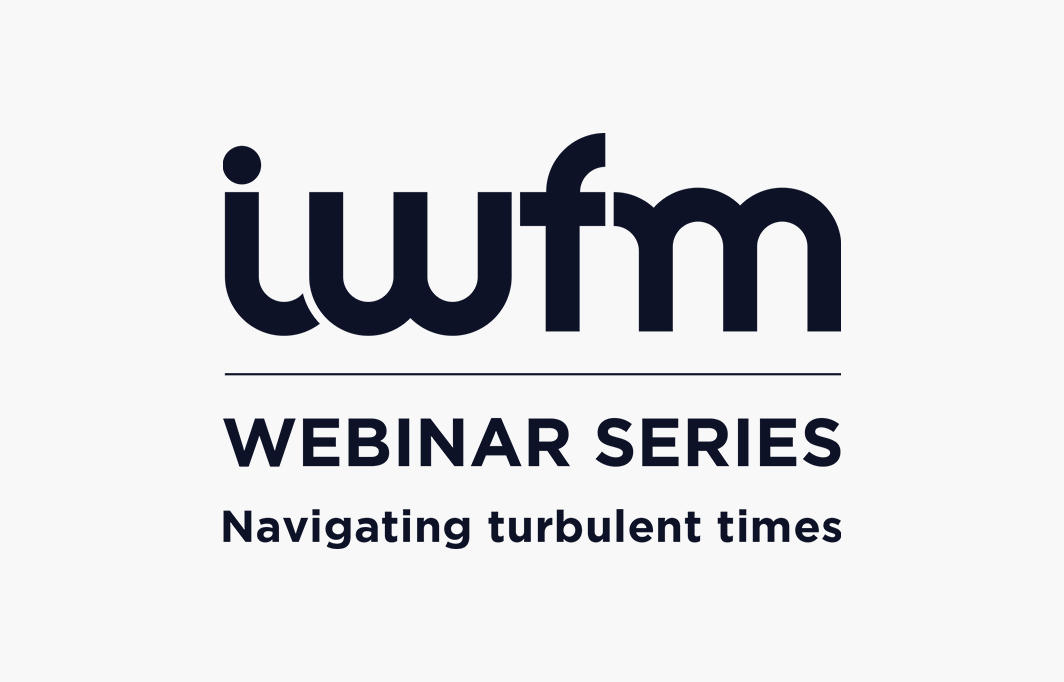What we learned in our webinar: ‘Remote yet connected: wellbeing in the times of COVID-19’
News
- General news
04 June 2020

Work is key to our wellbeing with a safe and pleasant working environment regarded as an essential component of a good job, yet research tells us that over half of the nation’s employees say their working environment has a negative effect on their mental health. With the coronavirus pandemic turning traditional working set ups upside down, mental wellbeing concerns have arguably never been higher on the agenda.
The webinar featured a panel of experts tackling questions such as how we can stay mindful and balanced in unpredictable times, and how facilities professionals can best help their organisations shape an effective wellbeing response.
Key take-outs from the webinar are below.
To view a recording of the full webinar, visit: https://www.iwfm.org.uk/resource/watch-ntt-episode-seven-remote-yet-connected-wellbeing-in-the-time-of-covid-19.html
To explore future webinars in the series, visit: https://www.iwfm.org.uk/coronavirus-resources/webinar-series-navigating-turbulent-times.html
Key take-outs:
1. Staying mindful and balanced in unpredictable times
- Many are missing the social interaction and connectivity of an office environment. The brain is a social organ and businesses should be looking for opportunities to engineer some form of social contact as best they can.
- As individuals, setting daily objectives is incredibly important. Having objectives, projects and a specific focus switches the brain into a central executive network where rewards rather than threats are at the forefront. Managers should help ensure their teams have a clear focus and set of deliverables on a daily basis.
- The pandemic has forced us to forge more personal connections with colleagues. We now know more about their personal lives than ever before, including the pets and children with which they share their home. We should continue to foster these connections moving forwards, rather than returning to ‘business as usual’.
2. The importance of a formal wellbeing strategy
- A formal wellbeing strategy - which should cover all aspects of workplace wellbeing, from flexible working hours to fitness and nutrition support - will not only improve wellbeing, but also contribute to business performance.
- Ad hoc programmes introduced throughout the crisis have made a real difference, but these will perform better where there is an integrated strategy in place.
- The two top drivers of wellbeing are health and relationships. A wellbeing strategy should ensure it focuses on these two drivers but also considers security, skills, values, and purpose.
3. Flexibility will be key as we move into the next phase of the pandemic
- For those who have already set up working from home models, businesses need to be prepared to be very flexible and have a range of options in place to suit all employees.
- Those that have understood during the past few months that this is an individual as well as a connected experience have performed best by providing choice to employees and understanding that one size doesn’t fit all.
- This will require efforts from FMs to instigate appropriate work occupancy models, shift patterns, and future workplace wellbeing programmes.
4. Shifting culture towards a greater focus on wellbeing
- The pandemic has challenged many traditional beliefs on what culture is and why it is so important - and made us question what it is that really drives culture: the office environment or your approach to your people?
- Company culture can be kept alive remotely – for example, by replicating behaviour that works in the office, such as a quick chat over coffee.
- As we transition back into the office and shift patterns cause employees to be in the physical office space at different times, it is important to maintain the lessons we have learnt during the past few months to avoid creating ‘in’ and ‘out’ groups.
5. The death of the workplace?
- The workplace is alive and well, but will inevitably be different post-pandemic, and businesses will need to adapt to the ‘new normal’.
- Workplace and FM professionals are uniquely placed to drive the wellbeing agenda. They act as the glue in organisations, marrying the needs of owners, occupiers and the supply chain to create a productive and happy workplace.
- Now more than ever we have the opportunity to return to the workplace and make sure our approach and strategies add value and enable decisions that benefit users and organisations alike, both today and into the future.
The webinar’s expert panel consisted of:
- Nicola Lathbury (host), Managing Director of Hexagon FM, and current Chair of Women in FM SIG (WIFM) and IWFM Midlands Region
- Tom Flatau, CEO of Teamworking International
- C-J Green, Co-Founder and Executive Director of BraveGoose, co-creator of
CleverGoose, and chair designate of the New Anglia Local Enterprise Partnership
- Nancy Hey, Executive Director of Whatworks Wellbeing
- Joanna Swash, CEO of Moneypenny.
